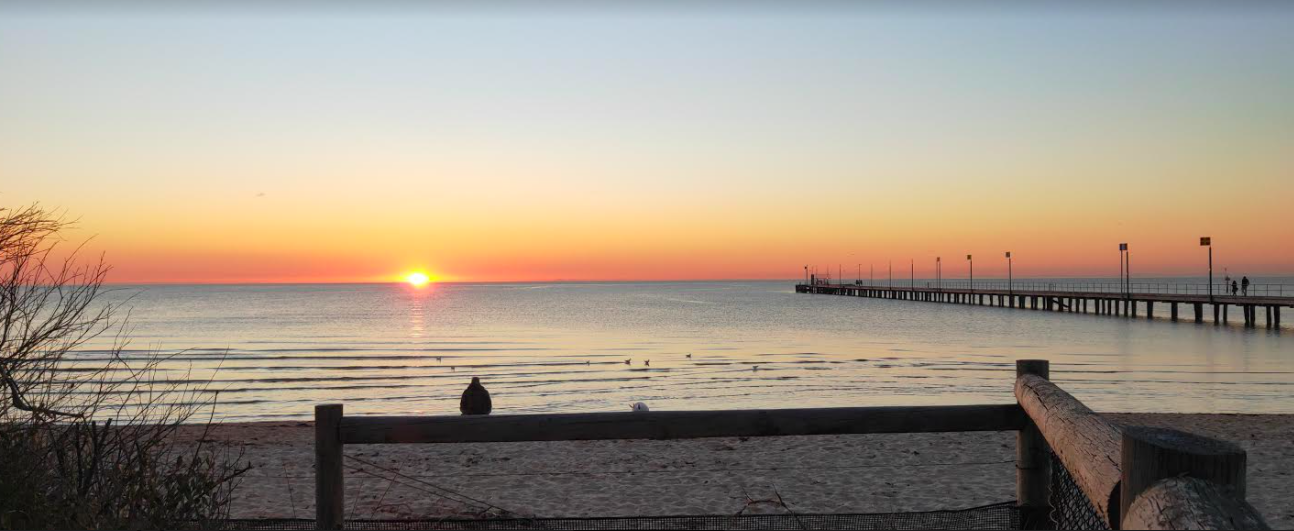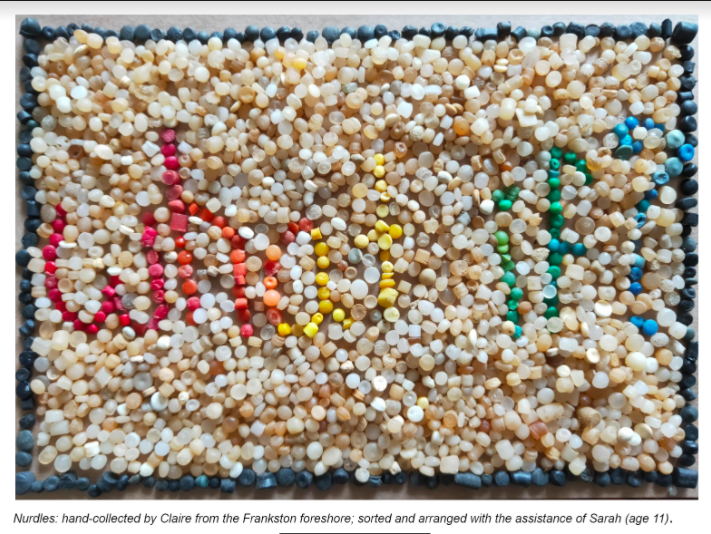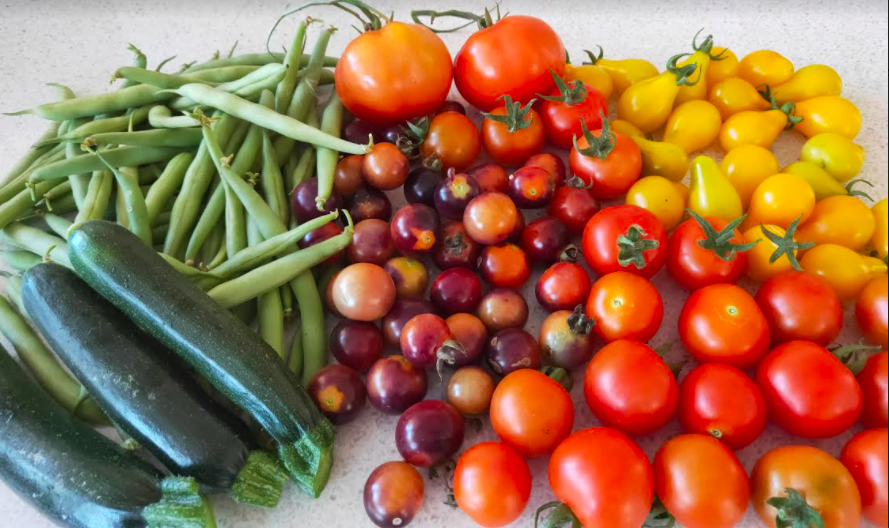What if we had a green-eyed view of the Bible?
Thursday, 24 September 2020
| Claire Harvey

Context is everything, they say.
In exploring what it might mean to have a green-eyed view of the bible, in the year 2020, there is no way to avoid peering through the lens of the twin disasters that have unfolded before us this year.
First came the devastating bushfires that burned through countless homes, towns and hectares of bushland, leaving images of hundreds of everyday Australians as ‘climate evacuees’ seared into our minds. Personally, I struggled to grapple with the reality that over a one billion animals perished in fires so expansive they covered an area similar to the landmass of England, generating plumes of ash so vast that they filled our skies for weeks. This ash eventually made its way as far as New Zealand, scarring its glaciers with the evidence of the ferocity of these fires.
Then came the coronavirus pandemic, slowly and relentlessly seizing our attention, and demanding a collective response. ‘Pivot’ is the word that has been used to describe the stark changes made to our ways of life and relationship, our patterns of work, our rhythms of engagement with our various communities, and perhaps even our interaction with law and order. Understandably we’re left feeling fragile, and uncertain. 2020 has presented us with challenges the likes of which most of us have not seen in a lifetime. Yet do these challenges whisper of new opportunities? Could these events be inviting us to awaken afresh, recalibrate and embrace our collective sense of our vulnerability and humanity? Are we being forced to consider that we can perhaps live with less, to perhaps reappraise the excesses of our former normal? Is there indeed even a thread of grace and gift in the paring back of our lives in this season?
What follows are some of my musings on how the lens of this season may indeed present us with an opportunity to read the scriptures afresh also. Can we indeed rouse ourselves to sustain a humble posture of being open to growth and transformation, as we emerge from lockdowns and curfews and physical distancing into some ‘new kind of normal’?

So - what if?
I confess to holding a deeply awkward relationship with ‘Christian bookstores’. Books aside (and that is a whole other story, for another day), it is what I rather facetiously refer to as ‘Jesus-junk’ that concerns me the most. Stickers and pens and mugs and knickknacks and trinkets and framed pictures and fridge-magnets and plaques and jewellery and journals. Even perfume at one point, if I recall correctly! What seems to run as a common thread, in the way many of these products are marketed, is depictions of a beautiful panorama of God’s good creation, plastered over with a short bible verse forcibly stripped from its biblical context. I’m sure you can conjure up a mental picture, and an accompanying verse, without too much effort? This tendency to use nature as a faith-affirming wall-hanging betrays our dualism. It is easy to treat nature as a mere backdrop to the more ‘important’ reality of our personal lives, which is characteristic of our rather utilitarian mode of being in the world, where people and ‘stuff’ are used for our comfort, pleasure, convenience or advancement. Too often we are simultaneously, like the scribes and pharisees, singing our religious songs, collecting memory verses, avoiding swear words all the while neglecting the weightier matters of the law: justice and mercy and faithfulness (Matt 23:23).
So here’s my first question: what if we were to see creation not as the backdrop to life, but as the stage itself? Because the stories of our lives would be infinitesimally short and stark without the gifts of sunlight and water and soil and fire and seeds and indeed a planet teeming with myriad living creatures. Despite our familiarity with and reliance upon the modern supermarket, the awkward and yet obvious truth is that we are completely dependent upon nature (not retail trade) for our own survival. In this sense I can totally understand the inclination to call her ‘mother earth’, as she nourishes us daily and with her continued bounty, that we may thrive.
But let’s suppose that the nourishment of nature goes beyond nourishment for our own physical survival, a mere ‘scaffolding’ for life? What if creation is also the orchestra and choir, filling our world with the most beautiful sound and song, with aesthetic beauty and artistic expression? And suppose further still, that creation even has a starring role, on centre stage, joining us in this glorious and yet sorrow-filled exquisite dance of life, groaning as in the pains of childbirth, as it too longingly awaits a redemption that is wrapped up in our own (Romans 8:22)? We read in scriptures of birds that sing, trees that clap their hands, donkeys that speak, rocks that cry out, and of lilies that are dressed more beautifully than Solomon in all his kingly splendour. The biblical narrative itself starts in a garden, and finishes in a garden city: God’s creation is an integral part of the powerful narrative of creation and redemption, not a mere backdrop or a bit part in the drama of our own busy and demanding lives.
And what if there is something of fundamental importance to this emerging understanding of the whole earth being God’s palace-temple? What if the early chapters of Genesis provide a functional and relational introduction to cosmology, introducing the why and the who, more than the what and the how? (After all, in deeply religious ancient cultures there was no need to dwell on questions regarding how something can come out of nothing: this was clearly the domain of the divine, with no further explanation being sought). What if the early chapters of Genesis introduce us to God who kicks the human story off by creating order upon a chaotic earth that had until then been formless; filling what had until then been void? What if God is about creating realms and rulers, creating time, seasons, and agriculture in order to provide the perfect conditions for human flourishing?
Indeed, what if the seven days of creation mirror the temple inauguration ceremonies that were widely familiar in the Ancient Near East? What if God’s crowning achievement was the creation of man and woman, in his own image: human creatures in relationship, lovingly placed within his beautiful temple paradise for divine purpose and pleasure? And what if today, in this now-and-not-yet era, we the body of Christ collectively form the temple of the Holy Spirit, each called to unique priestly duties, offering ourselves to God and to the world as living sacrifices within God’s sacred space on earth? And what if our primary vocation, as bearers of the divine image, is actually as gardeners, earth-keepers and caretakers (Gen 2:15)? The resurrected Jesus was, after all, mistaken for a gardener (I’d so love to know what he was doing that made Mary think he was a gardener)!
And what if our acts of creation-care not only act to heal our world but to also heal us? What if these expressions of both repentance and hope can become formative spiritual practices, whether planting trees, growing and harvesting food, sorting and recycling waste, pulling weeds, walking instead of driving, zooming instead of flying, abstaining from unnecessary consumption, or even carefully sifting through sand at the beach to retrieve plastic nurdles before they end up in the bellies of marine life (see picture, attached)? What if our efforts to redeem something of the marred beauty and goodness of our global garden restore something of our true vocation, reminding us of our interdependence and creatureliness as we live out lives of worshipful service of God, characterised by love of neighbour and planet? Perhaps Alice Walker is right, that ‘activism is (our) rent for living on the planet’.
What if we really are bringing environmental disaster upon ourselves, and polluting our own air sufficiently that we have already triggered a global climate emergency? As T. Wilson Dickinson warns in his challenging and yet deeply hopeful text The Green Good News,
Our world is ill. Our society is tottering toward ecological catastrophe, and yet we cannot act… (It) is as though we are in a car with the accelerator stuck to the floor (the economy) racing toward a bridge that has collapsed (the environment) without any means of changing course (the social). (122).
As much as God may have promised Noah that he would not allow a flood to destroy the earth again (Gen 9:11), this does not preclude coastal inundation and storm surges and sea-level rise from becoming our new normal, along with intensified droughts and heatwaves and bushfires, as well as new prevalence and patterns of disease, and escalating rates of species extinction. This week Melbourne’s eastern suburbs saw winds strong enough to bring down trees. One such tree mortally crushed four-year-old Ayan Kapoor.
But what if we also have before us an opportunity? What if the hard realities of COVID-19 become the final nail in the coffin of the social experiments we call postmodern thought and neo-liberal economics? Surely the events of this year have laid bare the ridiculousness of the suggestion that you can have your own subjective reality while I have mine and that in doing so we can maintain harmonious relationship - and good mental health - and avoid conflict and pain; or that the rich getting richer consistently benefits the poor (the fallacy of trickle-down economics); or that outsourcing public sector jobs to profit-seeking private corporations is good for our society (such as the security guards who were recruited via WhatsApp to stand guard at quarantine hotels with neither adequate training or suitable PPE)? Surely the myths of modernity have also been utterly exposed, like an emperor without any clothes? We are not autonomous individuals and our strong sense of personal agency and human mastery is illusory: it turns out that we are unable to create our own reality after all (B. Byrne, ‘A Tale of Two Crisis’, in Zadok Perspectives, 147, Winter 2020).
What if our mandatory enrolment in the 2020 school of hard knocks invites us to live in better ways that reflect our grounded, embodied existence as human creatures within a good but wild, always fragile, and often unpredictable unworld? Perhaps we can reclaim lives of meaning and purpose as we attend to and notice our surrounds, while we’re at it, recapturing a sense of responsibility rather than expediency or despair (P. Mercer, ‘Coming Ready or Not’, in Zadok Papers, S245, Winter 2020). What if we take more seriously our role as citizens, rather than consumers, including higher levels of civic engagement and democratic participation? What if, as Christians, we were to move beyond our dualistic vision of pie-in-the-sky-when-you-die and take seriously our mandate to seek that God’s will might come on earth now as it is in heaven, fuelled by a deep hope that our faithful and trustworthy God will surely work to extend his resurrection life to all of creation when he remakes all things? (Rev 21:5).
What if the people of God reclaimed their sense of dependent creatureliness, acknowledging that we do not exist outside of nature but rather as an extremely special part of it? What if our lives were characterised by an attentive, mutual interdependence with one another and all of creation, humbly accepting our limits rather than presuming the role of overlord (S. Buchanan, ‘Christian Reflections on the Coronavirus’, in Zadok Perspectives, 147, Winter 2020)? What if we allowed ourselves to join with creation in feeling the ache, the longing, the waiting, for our full redemption as children of God (Rom 8)? What if we appropriated the miracle that is Christmas, the incarnation of Christ, ‘as an act of radical solidarity through which God fully embraces the precious nature of human existence; indeed, through which God makes God’s-self vulnerable to human brokenness’ (Byrne, p.6)? What if we embraced our call as caretakers and place-makers, working ‘with the community in small, context-based ways to turn the public spaces, nature and social infrastructure in our neighbourhoods into places that are sustainable, beautiful and inclusive…’ (K. Kreminski, ‘What the Australian bushfires teach us about place’, in Zadok Perspectives, 146, Autumn 2020)?
What if, indeed.
We have before us paths of life and prosperity or death and destruction (Deut 30:15).
Let’s together choose life: abundant life, in Christ and in community.
Claire Harvey and her two primary-aged kids are involved with The Village Church in Mount Eliza in Victoria. Claire writes with the wise and insightful words of other human creatures reverberating in her heart and mind, particularly the skilled contributors to Zadok’s 2020 Autumn and Winter Perspectives and Papers as well as T. Wilson Dickinson (The Green Good News, 2019) and both NT Wright and John Walton.
In October this year Claire will be running in South Ward for Frankston City Council, campaigning collaboratively with two others, inspired by the nine pillars of the Australia Remade vision and fuelled by the possibility of creating a better version of us. By Christmas 2022 Claire hopes to be breaking bread and sipping wine with her new neighbours in The Digs cohousing community, to be located in the heart of Frankston city.
This article is from the upcoming October issue of Equip, Ethos’ bi-annual magazine for churches, on ‘Being Read: From Informative to Transformative Bible Reading’. You can subscribe to Equip at http://www.ethos.org.au/publications/Subscriptions.
Photo credits: Claire Harvey 2020.
